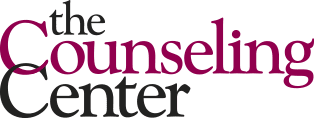Couples counseling can be a transformative experience for relationships. It provides a safe space for couples to address issues, improve communication, and strengthen their bond. However, preparation is key to making the most of this process. In this blog post, we’ll explore six essential steps to take in preparation for couples counseling, ensuring a productive and meaningful journey toward relationship growth and healing.
Step 1: Recognize the Need for Counseling
The first step towards preparing for couples counseling is recognizing the need for it. Common signs may include constant arguments, lack of communication, trust issues, or feeling disconnected from your partner. Acknowledging these challenges is crucial, as it demonstrates your commitment to working on the relationship and seeking professional guidance.
Step 2: Research and Choose a Qualified Therapist
Finding the right couples therapist is essential for a successful counseling experience. Take the time to research and choose a qualified therapist who specializes in couples counseling. Look for credentials, experience, and a therapeutic approach that aligns with your needs and values. Reading reviews and seeking recommendations from trusted sources can also help you make an informed decision.
Step 3: Reflect on Your Relationship Goals
Before starting couples counseling, take some time to reflect on your relationship goals. What do you hope to achieve through counseling? Is it improved communication, better conflict resolution, or rebuilding trust? A clear understanding of your goals will help you communicate them effectively to your therapist, ensuring that the counseling process is tailored to your needs.
Step 4: Open Communication with Your Partner
Effective communication is the foundation of any healthy relationship. As you wonder how to prepare for couples counseling, it’s essential to have open and honest conversations with your partner. Discuss your motivations for seeking counseling, your expectations, and any concerns you may have. Creating a safe and supportive space for dialogue can foster understanding and strengthen your connection as you embark on this journey together.
Step 5: Embrace Vulnerability and Openness
Couples counseling requires vulnerability and openness from both partners. To make the most of your counseling sessions, be willing to share your thoughts, feelings, and experiences with your therapist and partner. Embrace the process of self-reflection and be open to exploring new perspectives and insights. Remember, counseling is a collaborative effort, and your active participation is vital for its success.
Step 6: Set Clear Goals
Before your first counseling session, take some time as a couple to reflect on your goals. What do you hope to achieve through couples counseling? It could be improving communication, resolving conflicts, rebuilding trust, or enhancing intimacy. Setting clear goals will not only guide your sessions but also provide a sense of direction and purpose. Share these goals with your therapist during the initial sessions to ensure they align with your counseling journey.
Wondering How to Prepare for Couples Counseling? Trust the Experts.
Couples counseling can be a transformative experience that enhances your relationship and brings you closer to your partner. By recognizing the need for counseling, choosing a qualified therapist, reflecting on your relationship goals, fostering open communication, and embracing vulnerability, you lay the groundwork for a successful counseling journey. Remember that counseling is a process, and change takes time. With dedication, commitment, and the guidance of a skilled therapist, you can work towards building a healthier, more fulfilling relationship.
For support in your relationship, contact the professionals at The Counseling Center. We are a compassionate, collaborative, and community-minded group of professionals providing the guidance and support you need. Get in touch with us today to learn more.


